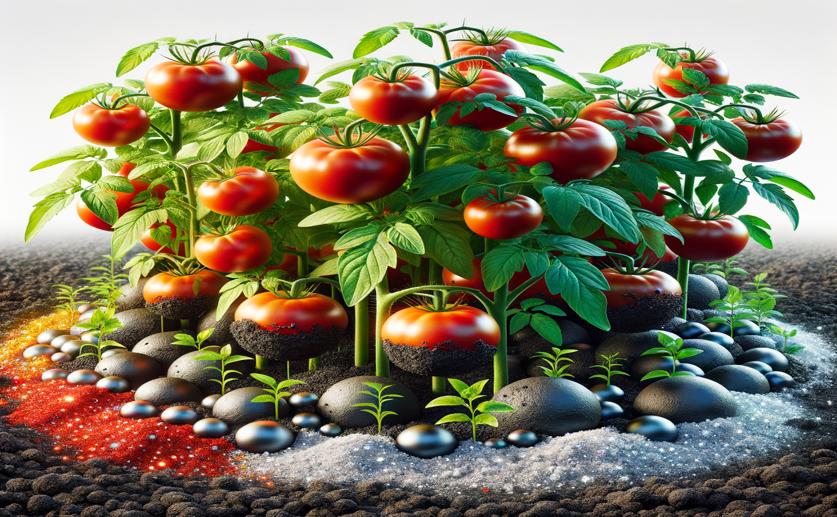
How Biochar and Steel Slag Help Tomatoes Cope with Lithium Stress
Jenn Hoskins
24th August, 2024

Image Source: Natural Science News, 2024
Key Findings
- Researchers at Amity University Uttar Pradesh found that lithium contamination in soil harms tomato plants, causing shorter roots and shoots, lower biomass, and increased cellular damage
- Applying coconut shell biochar (CBC) and steel slag (SS) significantly reduced lithium accumulation in tomato plants, with a combined reduction of 82% in roots and 90% in shoots
- The use of CBC and SS enhanced the activity of key antioxidant enzymes in tomato plants, helping them cope with lithium-induced oxidative stress and improving overall plant health
AgricultureBiochemPlant Science
References
Main Study
1) Unraveling the mechanisms of biochar and steel slag in alleviating lithium stress in tomato (Solanum lycopersicum L.) plants via modulation of antioxidant defense and methylglyoxal detoxification pathways.
Published 22nd August, 2024
https://doi.org/10.1016/j.plaphy.2024.109062
Related Studies
2) Growth and physiological response of spinach to various lithium concentrations in soil.
3) Carbon-based nanomaterials suppress tobacco mosaic virus (TMV) infection and induce resistance in Nicotiana benthamiana.



 19th August, 2024 | Greg Howard
19th August, 2024 | Greg Howard